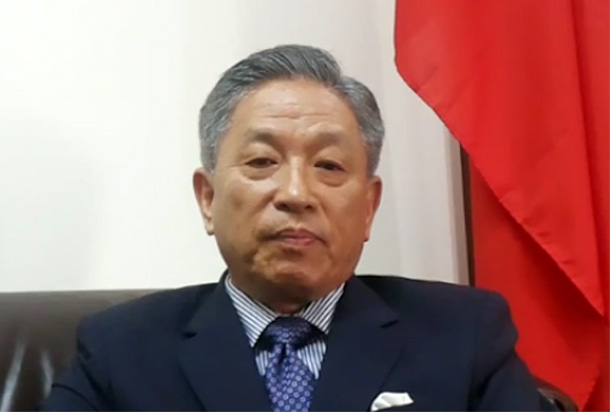New Delhi, July 26 Explaining its in detail concerning the award by the tribunal at the permanent court of arbitration on south china sea pronounced on 12 th July, ministry of foreign affairs, govt of the republic of china (ROC), while reiterating its legal rights over south china sea Islands and marine rights in accordance with the law of the sea, declared that the award of arbitration is completely unacceptable to it and the decisions are not binding on the republic of china.
In a strongly worded statement shared with diplomacy india.com by Taipei economic and cultural centre in new delhi, the govt of ROC has cited several deficiencies, ambiguities and contradictions in the award in terms of procedure, jurisdiction and legality and unilateralism involved in the whole process and announced that it will take resolute action to safeguard country’s territory and relevant maritime rights.
Enumerating the reasons which makes ROC’s refusal to accept the award possible , the statement has pointed out the inappropriate designation in the award describing ROC as “Taiwan authority of china” which is also demeaning to ROC as a sovereign state.
Secondly questioning the authority of tribunal to expand its authority declaring ROC governed Taiping Island, and other features in the Nansha (Spratly) Islands occupied by Vietnam, the Philippines, and Malaysia, all to be rocks that “do not generate an exclusive economic zone.” This decision severely jeopardizes the legal status of the South China Sea Islands, over which the ROC exercises sovereignty, and their relevant maritime rights.”, the release said.
That the ROC is entitled to all rights over the South China Sea Islands and theTir relevant waters in accordance with international law and the law of the sea is beyond dispute. The arbitral tribunal did not formally invite the ROC to participate in its proceedings, nor did it solicit the ROC’s views. Therefore, the award has no legally binding force on the ROC.
With regard to dispute resolution is what stated that “all disputes should be resolved peacefully in accordance with international law and UNCLOS. Second, Taiwan must be included in any multilateral dispute settlement mechanisms. Third, other relevant parties are obligated to ensure freedom of aviation and navigation in the South China Sea. And fourth, the ROC calls for other relevant parties to set aside differences and resolve disputes through joint development, and remains committed to promoting regional stability and protecting maritime resources.”
The Representative of TECC in New Delhi, Ambassador Chung-Kwang Tien said that there were 4 guiding principles for further action by ROC in the South China Sea.
The first action is that the government will step up patrol missions to safeguard the rights and safety of Taiwan fishermen operating in the South China Sea.
Second, the Ministry of Foreign Affairs is instructed to enhance multilateral dialogue with other relevant parties on collaboration and consensus.
Third, the Ministry of Science and Technology and related agencies are directed to invite international scholars to Taiping Island in the Nansha (Spratly) Islands to conduct scientific research on climate change, earthquakes, geology and meteorology.
Fourth, the MOFA will collaborate with international organizations to develop Taiping Island into a base for providing humanitarian aid and supplies. Fifth, the government will encourage more local talents to study maritime law so as to strengthen the nation’s preparedness in response to international legal issues
